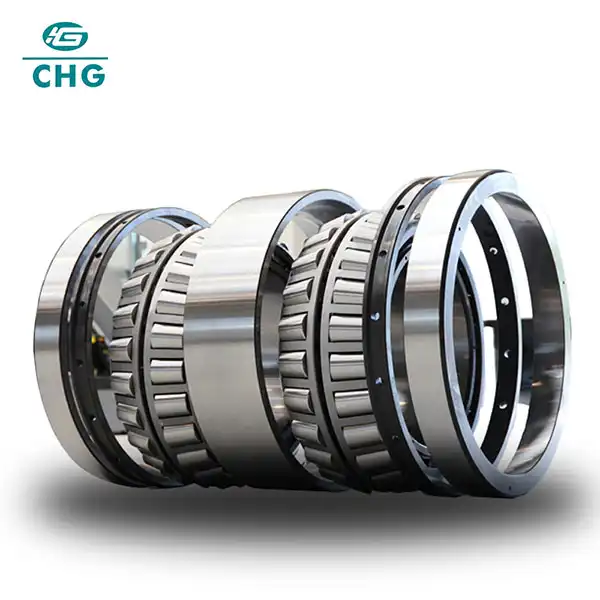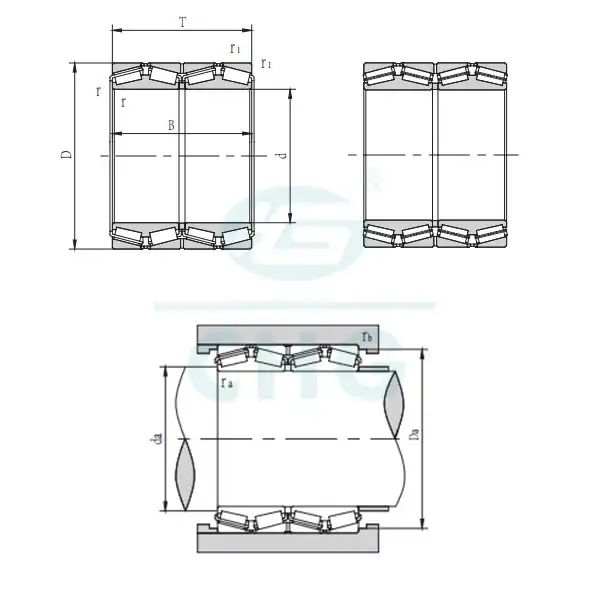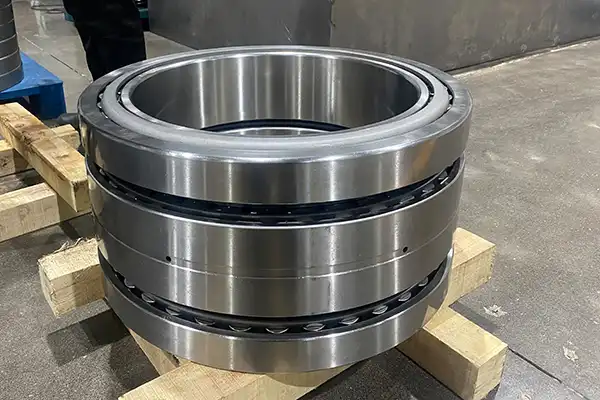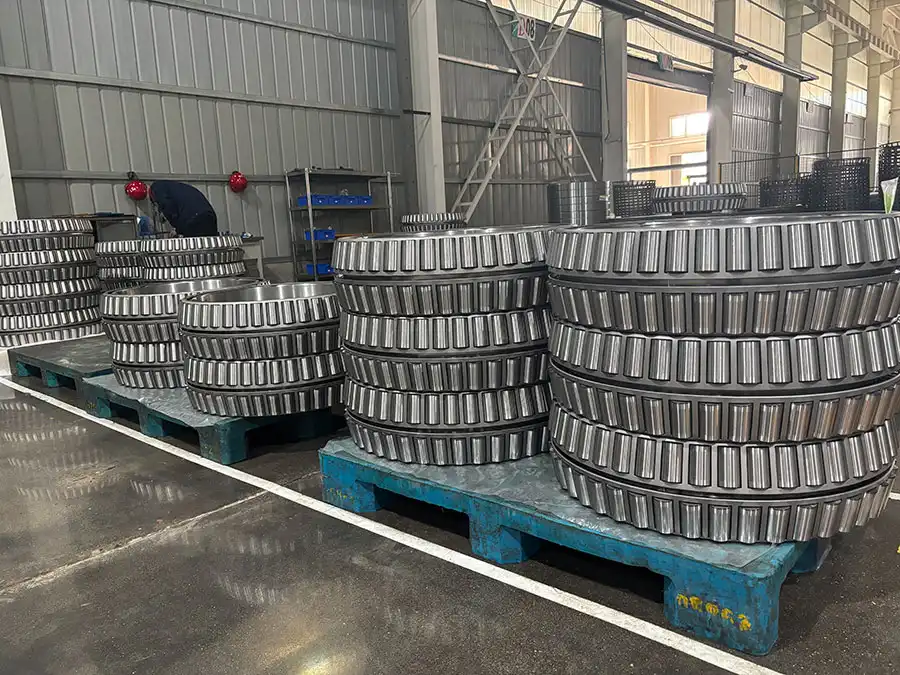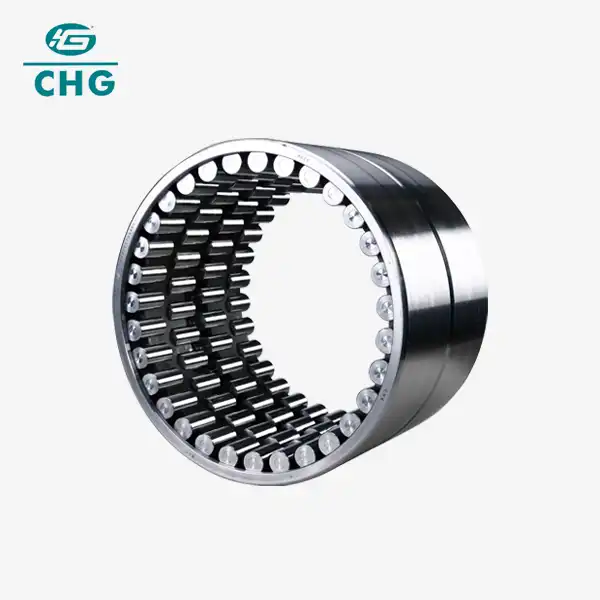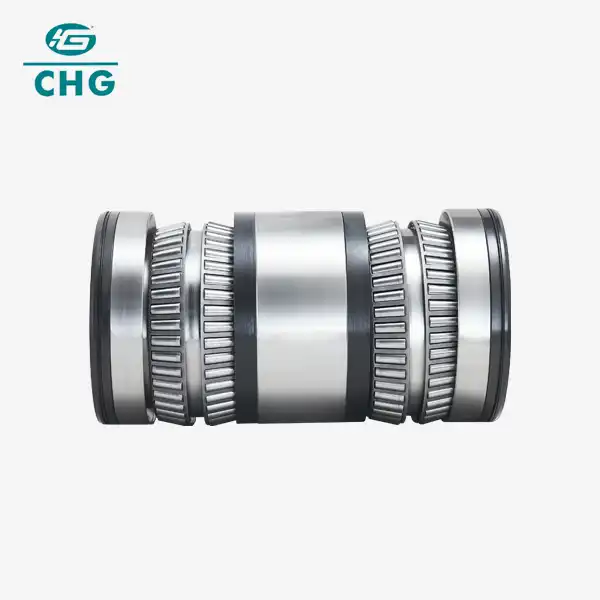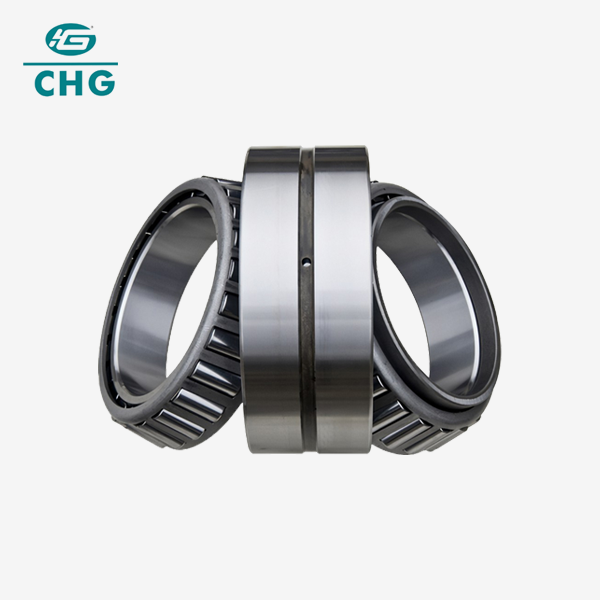Four row tapered roller bearings 3806/530
External diameter:880mm
Height(B):544mm
Weight:1350kg
Four Row Tapered Roller Bearings 3806/530
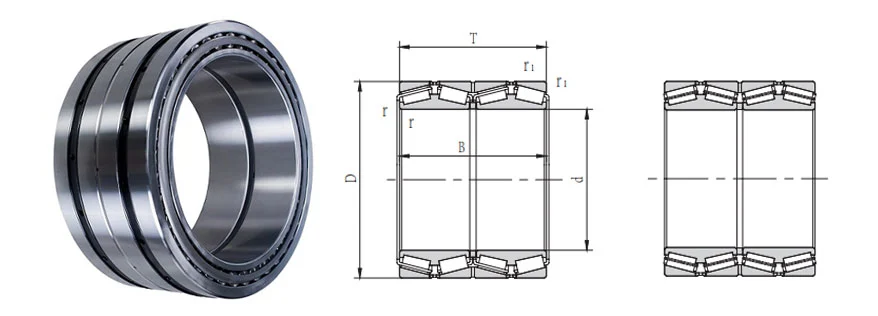
| Part Number | Boundary dimensions | Basic load ratings | |||||||||||||||||
| Current | Original | mm | kN | ||||||||||||||||
| d | D | T | B | rmin | r1min | Cr | Cor | ||||||||||||
| 3806/530 | 30777/570 | 530 | 880 | 544 | 544 | 7.5 | 7.5 | 10500 | 25600 | ||||||||||
Mounting Dimension
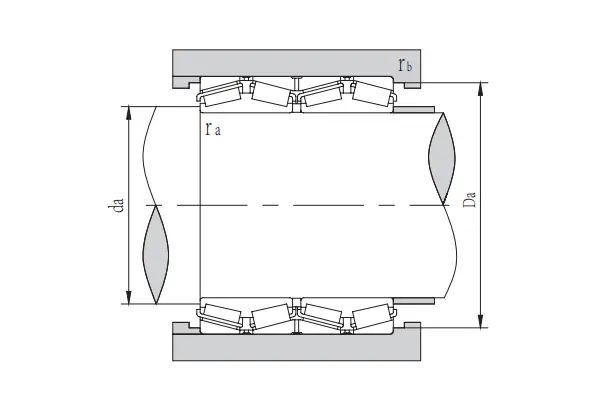
| Mounting Dimension | Axial Load Factors | Weight(refer) | Limiting speeds | ||||||
| mm | Y2 | Y3 | Y0 | kg | r/min | ||||
| damax | Damin | ramax | rbmax | Grease | Oil | ||||
| 570 | 794 | 6 | 6 | 1.5 | 2.2 | 1.4 | 1350 | 120 | 160 |
Contact Us
Want to know more details about four rows of tapered roller bearings, please contact us, support the standard models, also support customized
Email:sale@chg-bearing.com / WhatsApp:+8618768853742
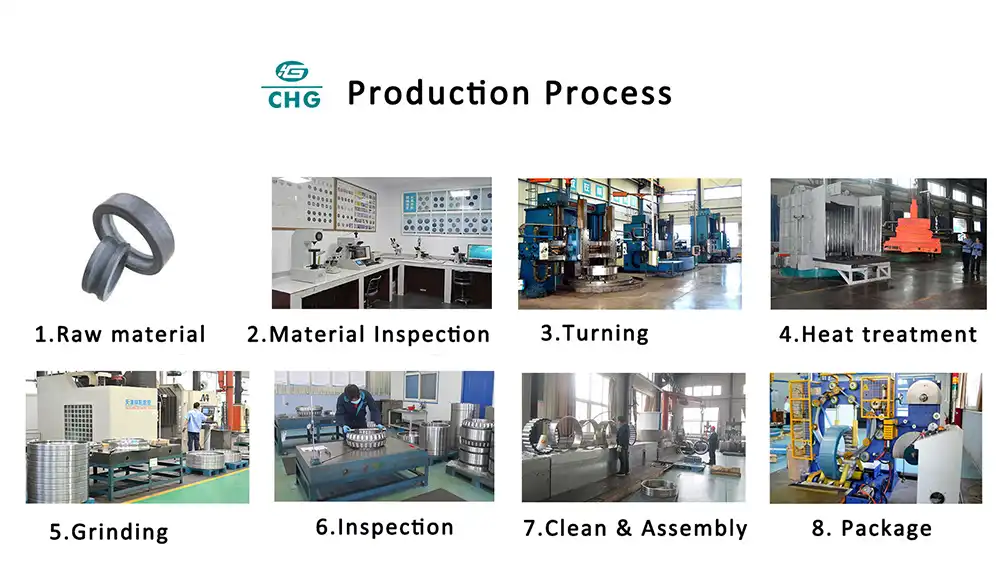
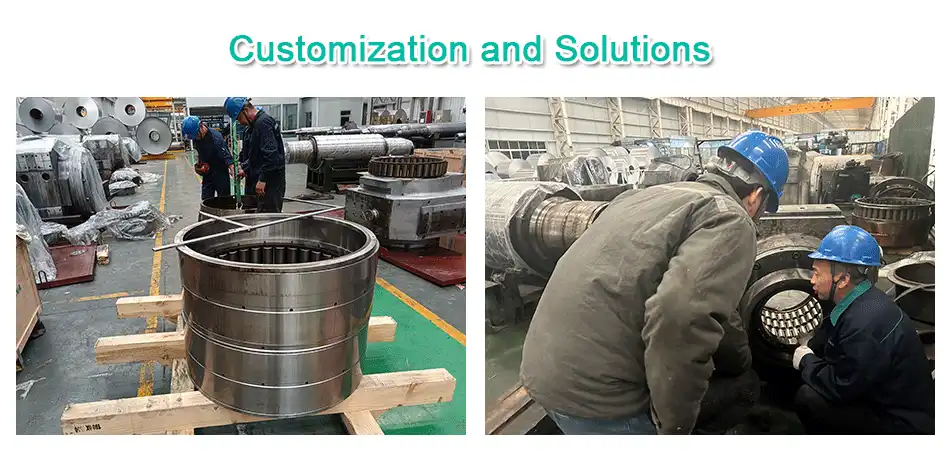
Advantages of Four-Row Tapered Roller Bearings
Four-row tapered roller bearings are critical components in heavy industrial equipment, particularly in extreme-load applications such as rolling mills. Their core advantages include high load capacity, optimized rigidity, extended service life, and design simplification. Below is a detailed analysis:
1. Ultra-High Load Capacity
Multi-row load distribution: Four rows of tapered rollers are arranged at precise angles to simultaneously handle combined radial and axial loads (e.g., rolling forces in steel mills), significantly outperforming single- or double-row bearings.
Typical applications: Work rolls in hot/cold rolling mills, backup rolls, with axial loads reaching hundreds of tons and even higher radial loads.
2. Enhanced Rigidity and Stability
Adjustable preload clearance: By adjusting the thickness of inner rings or spacer rings, bearing preload can be optimized to minimize elastic deformation during operation, ensuring high precision (e.g., ±0.01mm thickness control in rolled sheets).
Impact resistance: The multi-row design disperses sudden shock loads (e.g., vibrations during material entry), protecting the spindle.
3. Extended Service Life and Easy Maintenance
Optimized stress distribution: The four-row configuration reduces contact stress on individual rollers, extending fatigue life (L10 life can exceed tens of thousands of hours).
Split design: Some models feature separable outer rings, allowing replacement without disassembling the entire roll (reducing downtime).
4. Space Efficiency and System Simplification
Replaces multiple bearings: A single four-row bearing can substitute for multiple single-row bearings + thrust bearings, saving axial space (e.g., more compact mill housing designs).
Integrated sealing options: Some models include built-in seals or lubrication grooves for harsh environments (e.g., high temperatures, dust).
5. Typical Applications
| Industry | Equipment | Key Requirements |
|---|---|---|
| Steel & Metallurgy | Hot/cold rolling mill rolls | Extreme loads, high rigidity, heat resistance |
| Non-ferrous Metals | Aluminum plate mills | High-precision thickness control, impact resistance |
| Mining Machinery | Crusher spindles | Vibration resistance, long service life |
Comparison with Single/Double-Row Tapered Roller Bearings
| Feature | Four-Row Tapered Bearings | Single/Double-Row Tapered Bearings |
|---|---|---|
| Load Capacity | ⭐⭐⭐⭐⭐ (Multi-row sharing) | ⭐⭐~⭐⭐⭐ |
| Rigidity | Extremely high (adjustable preload) | Moderate |
| Space Occupancy | Axially compact, radially larger | Requires multiple bearing sets |
| Cost | High (but lower system cost) | Low (but needs multiple units) |
Installation & Maintenance Tips
Clearance adjustment: Requires specialized tools to measure preload—excessive tightness causes overheating, while looseness reduces precision.
Lubrication requirements: High-temperature applications demand extreme-pressure grease or circulating oil (e.g., ISO VG 220 mill oil).
Failure warning: Vibration monitoring + temperature sensors prevent sudden failures (common failure mode: raceway spalling).
Selection Guidelines
Choose four-row bearings when:
Rolling force > 500 tons or axial load > 200 tons.
Required material thickness tolerance < 0.05mm.
Opt for single/double-row bearings in: Medium/small equipment or intermittent loads (e.g., straighteners).

